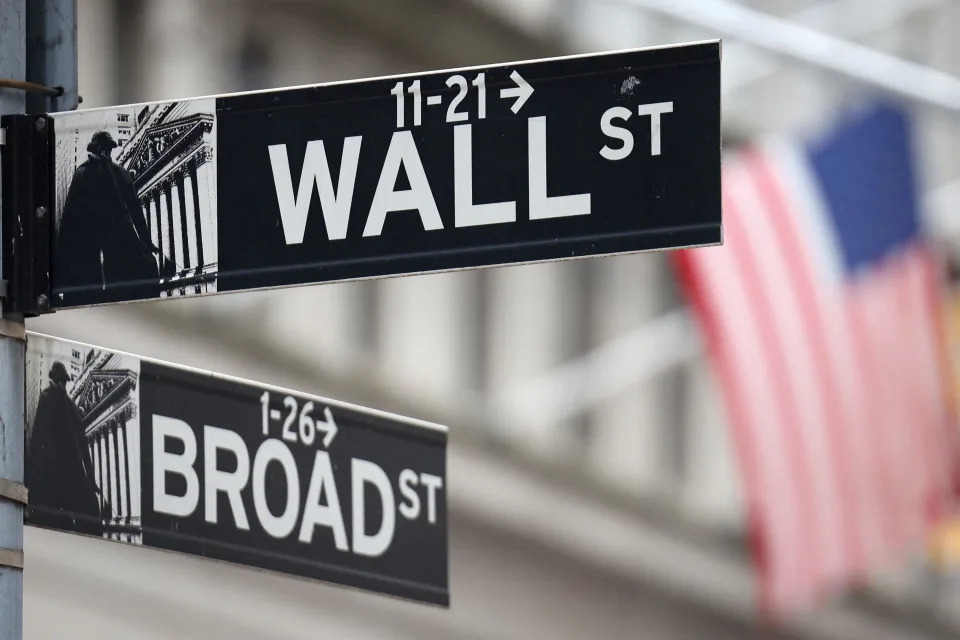Friday the 13th didn’t spook investors with U.S. stocks little changed on the day as investors bided time until the Federal Reserve meeting on Wednesday.
The broad S&P 500 index dipped 0.16 point, or essentially stayed flat, to close Friday at 6,051.09. For the week, it slipped 0.6% to snap a three-week winning streak.
The blue-chip Dow eased 0.2% or 86 points, to 43,828.06 for a seventh straight day of losses, the longest losing streak since 2020. It ended the week 1.8% lower, for the largest weekly decline since October and the second consecutive week of losses.
The tech-heavy Nasdaq closed Friday up 0.12%, or 23.88 points, at 19,926.72, off its record high 20,061.65 reached earlier in the week. For the week, the Nasdaq gained 0.3%.
The Fed’s last policy meeting of the year ends on Wednesday. While the CME Fed Watch tool shows the markets see a 97% chance for a quarter-point trim in the short-term benchmark fed funds rate, to between 4.25% and 4.5%, the rate outlook next year is murkier.
Markets currently expect a pause in January, the CME Fed Watch tool shows, after warmer-than-expected inflation data this week ignited some caution, economists said.
“Improvements in inflation appear to have stalled,” wrote KPMG chief economist Diane Swonk in a report.
What is inflation doing?
Annual consumer inflation increased for the second straight month , up 2.7% in November and the largest jump since July. Core inflation that excludes the volatile food and energy sectors was flat at 3.3%. Both remain above the Fed’s 2% inflation goal.
Further warning signs on inflation are seen in wholesale prices, or prices paid by companies. Annual wholesale prices last month climbed 3% and gained 3.5% excluding energy and food. They were both the highest levels since February 2023.

Treasury yields on the rise
U.S. government debt yields rose for a fifth straight session to reach the highest levels in the past few weeks on signs inflation remains a problem for the Fed, economists said.
The benchmark 10-year yield climbed to more than 4.4%, and the 2-year yield was 4.247% on Friday.
Surging wealth: Elon Musk's skyrocketing net worth: He's the first person with over $400 billion
Big tech still reigns
Inflation worries haven’t hit the largest tech stocks, including Apple , Nvidia, Microsoft, Amazon , Facebook parent Meta, Google parent Alphabet, Broadcom and Tesla.
Alphabet, Amazon, Apple, Broadcom and Tesla all hit record highs this week despite posting mixed performances on Friday. Tesla’s record close earlier this week was the first in more than three years, as the stock continues to gain amid chief executive Elon Musk’s chummy relationship with President-elect Donald Trump. Since the election, Tesla shares have soared about 65%.
Broadcom shares surged more than 24% on Friday, boosting the company’s valuation to an eye-watering trillion dollars after the company predicted a massive expansion in demand for chips that power artificial intelligence (AI).
Chief executive Hock Tan said AI could present Broadcom with a $60 billion to $90 billion revenue opportunity in 2027, more than four times the current size of the market. Broadcom also forecast first-quarter revenue above estimates late Thursday.
Medora Lee is a money, markets and personal finance reporter at USA TODAY. You can reach her at mjlee@usatoday.com and subscribe to our free Daily Money newsletter for personal finance tips and business news every Monday through Friday morning.
This article originally appeared on USA TODAY: Dow, S&P 500 post weekly loss. Nasdaq up as Broadcom hits $1T valuation





